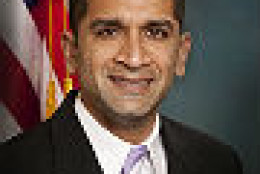TRICARE
-
The Government Accountability Office has denied nine out of nine bid protests filed by health insurers who came out on the losing end of the Defense Department’s $58 billion in contract awards to run the military's managed health care system.
November 15, 2016 -
Congress wants to tinker with TRICARE, but one expert says the military health plan is doing fine by itself.
November 04, 2016 -
TRICARE contract protests are now so inevitable that a company might want to file one even if they're one of the winners.
August 08, 2016 -
DOD made awards in the next generation of contracts to run its TRICARE health plan: $41 billion to Humana and $18 billion to Health Net.
July 25, 2016 -
The Defense Department settled on two firms to manage the latest generation of its TRICARE health insurance system Thursday, picking Health Net Federal Services and Humana Military for contracts worth up to $18 billion and $41 billion, respectively, over nearly six years.
July 21, 2016 -
The Senate version of the defense authorization bill has a much more modest approach to enrollment fees for TRICARE users.
May 16, 2016 -
A Senate panel's version of the 2017 defense authorization bill keeps the military pay raise at 1.6 percent, but expands some health care options.
May 10, 2016 -
Reforms in the 2017 defense authorization bill add enrollment fees to TRICARE to try to bring down government costs.
April 29, 2016 -
DoD's 2017 budget includes few changes to pay and benefits, but DoD facilities and procurement take a major hit. The proposal includes an $8.1 billion reduction to acquisition programs, a $1 billion cut to new construction and severe underfunding of base maintenance.
February 10, 2016 -
With the defense authorization bill poised for President Obama's signature, Federal News Radio looks at certain provisions that will impact federal workers.
November 11, 2015 -
The defense authorization bill agreed upon by House and Senate negotiators would affect military pocketbooks in ways both big and small. It includes a 1.3 percent pay increase for uniformed service members but chips away at the military's pension system. In exchange for shrinking pensions, it encourages current troops — and mandates that future ones — invest in the Thrift Savings Plan.
September 30, 2015 -
Improper payments associated with the military's TRICARE health system added up to about 0.3 percent of DoD's overall costs. Improper payments associated with Medicare were more than 10 percent of overall costs for the Health and Human Services Department. Vijay D'Souza is director of health care issues at the Government Accountability Office. On In Depth with Francis Rose, he said TRICARE's low rate of improper payments might be too good to be true.
February 23, 2015 -
The White House defense budget request is $38 billion over the limits set by sequestration. In an attempt to balance the increased funding, the Pentagon is pursuing pay and benefits reform, and another round of BRAC.
February 02, 2015 -
The nine-member Military Compensation and Retirement Modernization Commission submitted 15 recommendations to bring effectiveness and efficiency, and that would protect, maintain and improve benefits for the service members.
January 30, 2015 -
A Pentagon review of the military's health facilities concluded the quality of DoD's medical system is generally in line with what's offered by private sector providers. Defense Secretary Chuck Hagel said "average" is not good enough.
October 02, 2014











